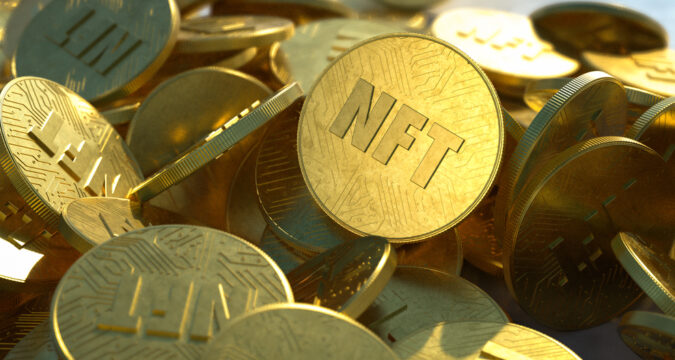
Non-fungible tokens (NFTs) have found different use cases recently, making them more and more useful.
One of the most recent applications is in the area of lending. Before now, NFTs were only regarded as digital versions of items such as music, pictures, and more recently real estate.
It is now possible to use those digital items as collateral for crypto loans. Just as you can secure a loan using your property, NFTs are digital properties you can use for the same purpose.
Basically, you need to have an NFT of value that you can offer a lender in exchange for a crypto loan. The procedure is similar to the one used in traditional finance when you want to obtain a loan as we’ll see shortly.
NFT loans are a great way to encourage the adoption of NFT technology, since it shows that NFTs and crypto in general can be applied in real life situations to solve real problems.
How NFT Loans Work
As mentioned earlier, the procedure for securing an NFT loan is similar to the procedure for obtaining any other kind of loan.
You need to have an NFT that is worth being a collateral in order to commence the process. Once you have this, you need to follow these steps to obtain your loan.
Several NFT loan platforms exist and you can use any of them to obtain your loan. However, caution must be exercised as there are lots of scams out there you should beware of.
The first step is to identify the platform you wish to use, based on their reputation and other factors.
Tender your NFT Collateral
After selecting a lending platform to use, the next thing is to approach the platform and request for a loan. You’ll then be required to provide the NFT collateral for inspection.
They will then assess the suitability of the NFT in this appraisal phase. NFTs with established secondary market history are more likely to succeed here.
Loan Approval
After a thorough assessment and the lender finds the NFT collateral worthy, the next thing is for the loan to be approved.
Depending on the platform you choose, your loan may be issued in a stablecoin or some other crypto assets. After that, your NFT is locked in a smart contract until the agreed date of repayment.
Repayment
You’ve gotten your loan and used it for whatever you needed it for. The next thing is to repay the loan on the agreed date.
The duration of the loan and the interest rate is determined by the smart contract upfront even before you finalize your application.
If for any reason you’re unable to pay back the loan on the due date, the smart contract will automatically liquidate the locked NFT and assign it to the lender as payment for their loan.
Pros of NFT Loans
NFT loans make it possible for people with valuable NFTs to access funds for solving urgent problems without having to sell their NFTs. They also offer a way for people with crypto assets to lend and earn passive income on their assets.
Cons of NFT Loans
NFT loans have some pitfalls you should be aware of if you wish to start benefiting from them. The following are some of the cons of NFT Loans.
Low Liquidity
Liquidity is a thing in crypto generally, but it’s even worse with NFTs. In case a borrower fails to pay back a loan, the lender may have a hard time selling the NFT because of lack of liquidity.
Price Volatility
An NFT that is worth thousands of dollars today may be worth a hundred dollars tomorrow because their value changes, just like the value of cryptocurrencies.
Smart Contract Error
NFT loans are run almost completely by smart contracts, and because smart contracts can malfunction, they can put the entire process at risk.


